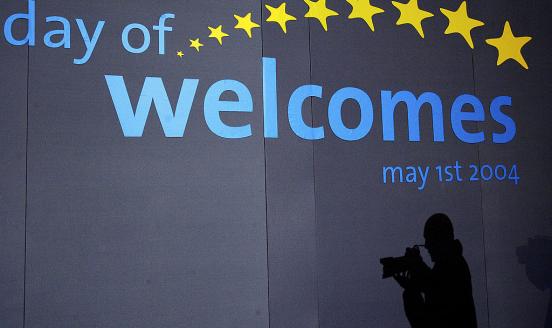Germany’s Government Still Has an Allergy to Investing
The new coalition budget looks a lot like the old German coalition budget.
This opinion piece has been published in Bloomberg
[caption id="attachment_20871" align="alignnone" width="305"]

[/caption]
Germany’s new government is composed of the same two parties as its previous one, but many in Germany and outside expected one major change: more government spending. Olaf Scholz, the new finance minister, comes from the Social Democratic Party, which heavily campaigned on a promise of more investment and growth in Germany.
And yet Scholz’s first budget suggests those hopes were misplaced: The Scholz plan looks almost identical to that of the previous minister, Christian Democrat Wolfgang Schaeuble. Despite the change at the top of the powerful finance ministry, compare the two budgets (see chart below) and it’s hard to find any substantial difference in the investment picture. That's a worry for Germans, but also Europeans more broadly.
Federal government investment as a percentage of GDP, Germany’s investment ratio is even smaller under the Scholz plan. And that is just what’s budgeted. Investing less than what is budgeted is a recurring problem in Germany — the country simply isn’t able to plan and put in place the infrastructure projects to meet the budget allocations. The new finance minister does not address that problem; nor does he show any ambition to increase the federal public investment ratio.
This may not seem a pressing problem for an economic powerhouse like Germany, but as its economy grows, it needs better infrastructure, faster internet access, updated software on the computers of the public administration and so on. Net capital formation of the German state has been around zero since 2003 (see chart below) and is set to stay constant, at best, under Scholz. Currently, state (laender) and federal government spending together only just make up for the falling net capital stock of local government.
Low levels of public investment and the fall in the ratio of public capital to income is a real concern. A good public capital stock is essential for the private sector to thrive, but also for growth and productivity.
The net investment of the federal government only amounts to around 0.1 percent of gross domestic product, and the government sector overall has not had significant net investment since 2003. This underinvestment is most apparent in the communes of West Germany, in road and school buildings and in the network infrastructure such as broadband cable for faster internet access.
Even beyond investment measures, the new finance minister does not substantially change the course set by his predecessor. Total federal government expenditure as a percentage of GDP is, if anything, set to decline. Scholz also made clear that he will stick to a balanced budget, known as Schaeuble’s “black zero.” Thus the overall budget surplus of the German state will likely increase even further, driven mainly by surpluses of the social security systems, state and local governments.
Changing this requires a change of assumptions. The German finance ministry has long held the view that targeting net investment is the wrong approach. Schaeuble argued that the true investment position was larger than the net investment number stated because capital as still usable even if it is, according to accounting principles, depreciated.
That’s not quite right; old capital stock is typically far less productive than newer stock. Using an old version of Microsoft Office certainly comes with many problems and a loss of productivity — as one German elementary school teacher recently pointed out.
The new German finance minister should allocate funds for upgrading the network infrastructure in Germany. He should also ensure that local governments receive sufficient financial support. (The unequal distribution of tax revenues across the country ensures that while some communes are rich and enjoy good infrastructure while running surpluses, others have few funds for development.) Here, the new government seems at least determined to improve the situation, but it could take some time before additional money flows to the communes in need.
Germany’s fiscal decisions matter hugely for German growth but they have broader implications too. Many European countries have put their hopes in Scholz using some of his abundant tax revenues to improve investment and begin a much-needed rebalancing of the German economy, thereby increasing German demand for European products. So far, it looks as if such hopes will be disappointed.



